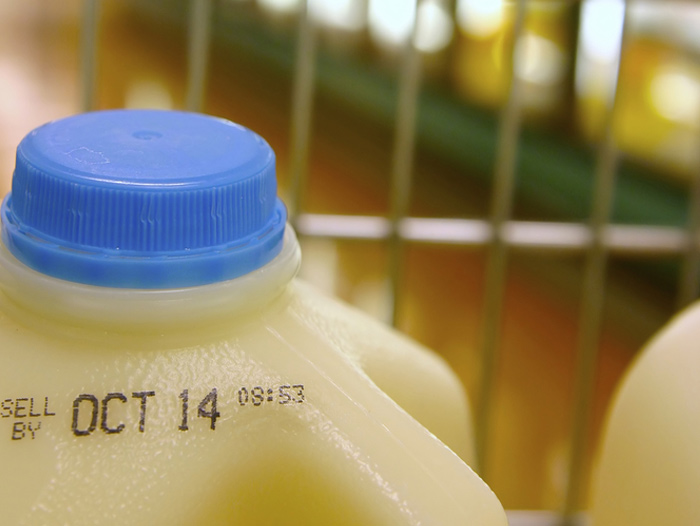New Bill Would Standardize Food Date Labels Nationwide to Reduce Waste
August 2, 2019 | 3 min to read

WASHINGTON – Rep. Chellie Pingree (D-Maine) and Rep. Dan Newhouse (R-Wash.) introduced the Food Date Labeling Act (H.R. 3981), a bill to standardize date labels on food in order to help avoid unnecessary waste caused by consumer confusion. A companion bill has been introduced by Sen. Richard Blumenthal (D-Conn.).
A statement follows from Elizabeth Balkan, Food Waste Director at the Natural Resources Defense Council (NRDC):
“Tons of perfectly good food and money is trashed every day because of confusing date labels. That adds up to a staggering amount of climate pollution, wasted water and missed opportunities to feed people in need. By standardizing food date labels nationwide and educating people about what they mean, this legislation will help reducethis unnecessary waste.”
Background
With the exception of infant formula, the date labels applied to food are not federally regulated. As a result, many states and localities have standards that vary widely, contributing to a patchwork of different date labeling terms that are applied to different products. Nearly 50 different date labeling terms have been applied to foods produced in the U.S., fueling confusion about what the labels mean and driving waste.
Up to 40 percent of food in the U.S. goes uneaten, costing the economy roughly $218 billion annually. It’s a problem that is costing the average American family of four at least $1,500 every year.
Consumers are responsible for more food waste in the U.S. than grocery stores, restaurants or any other part of the supply chain. Studies show that more than 80 percent of Americans unnecessarily throw food away because of confusing date labels on food.
When good food goes to waste, so do all of the resources used to grow, process, chill and transport it:
- Food waste is the single largest component of solid waste in U.S. landfills, where it emits methane, a powerful greenhouse gas.
- If global food loss and waste was a country, it would be the third largest emitter of greenhouse gases after China and the United States.
- 21 percent of the water used in U.S. agriculture goes to producing food that is never eaten.
At the same time, 1 in 8 Americans lacks a steady supply of food to their table.
###
The Natural Resources Defense Council (NRDC) is an international nonprofit environmental organization with more than 2 million members and online activists. Since 1970, our lawyers, scientists, and other environmental specialists have worked to protect the world’s natural resources, public health, and the environment. NRDC has offices in New York City, Washington, D.C., Los Angeles, San Francisco, Chicago, Bozeman, MT, and Beijing. Visit us at www.nrdc.org and follow us on Twitter @NRDC.
